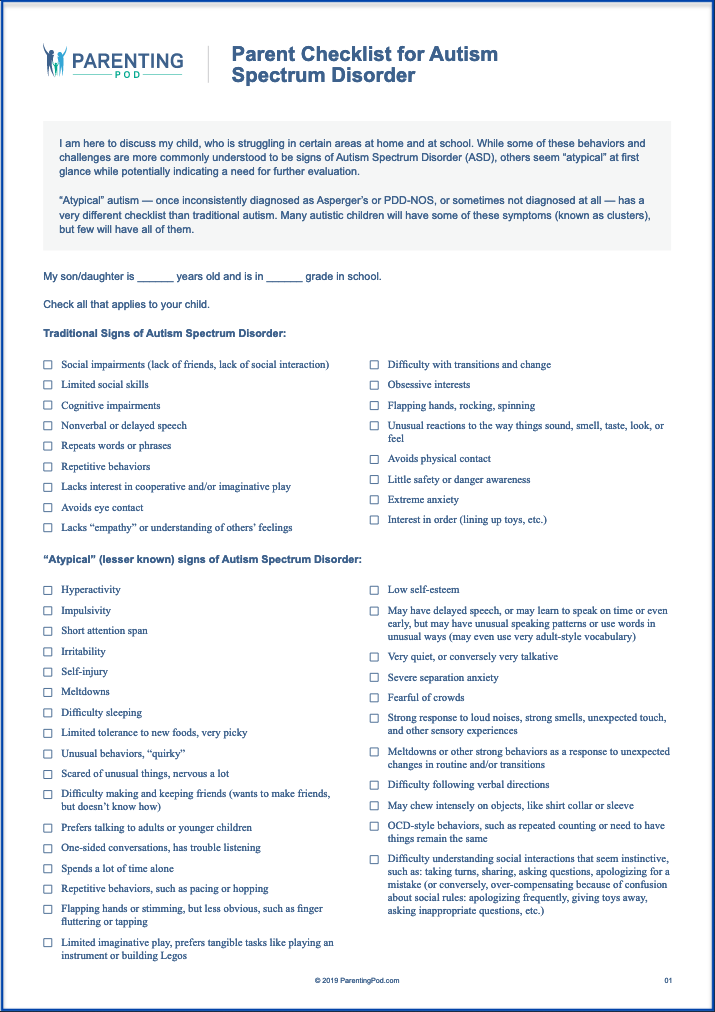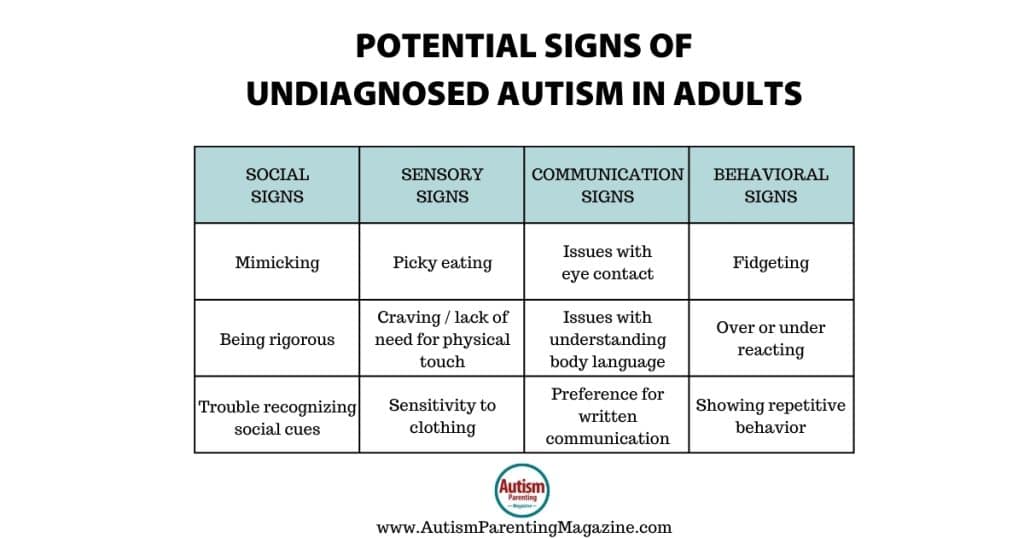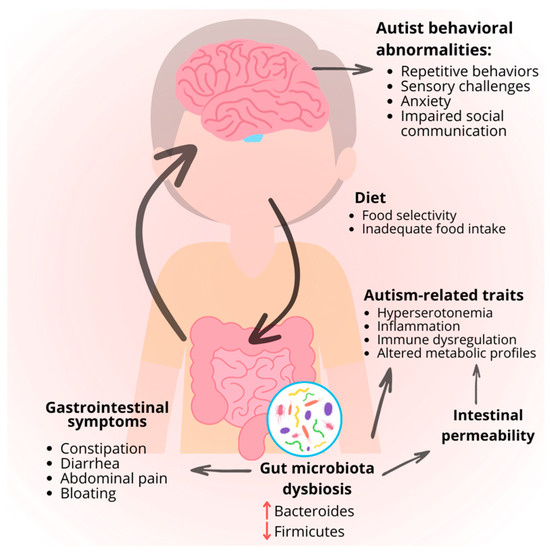Why social interactions can develop with guidance from Autism Spectrum Therapies specialists
Why social interactions can develop with guidance from Autism Spectrum Therapies specialists
Blog Article
Trick Indications and Signs to Identify in People With Behavior Autism
When you come across a person with behavioral autism, recognizing crucial indicators and symptoms is important. Additionally, sensory sensitivities can lead to frustrating experiences.
Difficulties in Social Communications
When you connect with a person on the autism range, you could observe they battle with social hints and interaction. These obstacles can make social communications feel frustrating for them.
Furthermore, you may find that they like routines and acquainted setups, which can restrict their readiness to take part in new social situations. When they do engage, they might speak concerning their rate of interests in excellent detail without observing if you're interested. This can cause one-sided discussions that leave you feeling detached. Understanding these obstacles can help you approach interactions with compassion and patience, cultivating an extra comfy setting for both of you.
Trouble With Verbal and Non-Verbal Interaction

Non-verbal communication can be a lot more difficult. You might see an absence of eye contact or minimal use motions, which can make interactions feel unpleasant. Faces may not constantly straighten with the conversation, bring about complication regarding their feelings. Acknowledging these signs is important, as it helps you much better support and involve with individuals on the autism range. By comprehending their interaction difficulties, you can cultivate much more meaningful links and offer an extra supportive atmosphere.
Repeated Habits and Routines
Interaction obstacles typically come with various other indications of autism, such as repeated habits and a strong preference for routines. You may discover that people with autism typically take part in specific, repetitive activities, like hand-flapping, rocking, or repeating expressions. These actions can offer convenience and a feeling of control in an often overwhelming globe.
When they follow a structured schedule,Routines are equally important; several individuals flourish. You may discover that changes to these regimens can cause considerable distress. If they have a day-to-day ritual of consuming breakfast at a details time or adhering to a particular path to college, any kind of disruption can cause anxiety.
Identifying these patterns assists you understand their behavior and supply assistance. By fitting their demand for routine and allowing repeated activities, you can develop an extra comfy environment that alleviates their difficulties.
Sensory Sensitivities

Typical Sensory Triggers
Sensory level of sensitivities can substantially affect day-to-day life for people with autism, as specific stimuli commonly trigger overwhelming responses. Common sensory triggers consist of loud sounds, brilliant lights, and strong smells. Understanding these triggers can assist you manage your atmosphere much better.
Behavioral Feedbacks Clarified
Understanding your behavior actions to sensory level of sensitivities is important, as they typically expose how you interact with the world. You may discover that certain sounds, lights, or appearances overwhelm you, resulting in anxiety or discomfort. When confronted with these stimuli, you may take out, cover your ears, or perhaps respond strongly. These responses aren't simply traits; they're your method of managing overstimulation. You might additionally discover on your own looking for particular sensory experiences, like deep stress or silent atmospheres, to help ground on your own. Recognizing these patterns aids you understand your needs far better and can direct exactly how you connect them to others. By recognizing your sensory sensitivities, you can function towards creating a setting that feels much more workable and comfy for you.
Coping Strategies Introduction
Identifying your sensory sensitivities is just the first step; now it's time to discover coping techniques that can aid you handle those experiences properly. Begin by producing a sensory toolkit tailored to your needs. Establishing an organized regimen can likewise supply predictability, lowering anxiety around sensory overload.
Restricted Interests and Emphasis
While numerous individuals develop a large range you can find out more of passions, those with autism often demonstrate limited passions and an extreme emphasis on certain topics. You might see that somebody with autism can spend hours delving right into their favorite topic, whether it's a particular sort of train, a certain movie, or a scientific principle. This extreme focus isn't just a pastime; it can come to be a main component of their identity and social interactions.
You may find that conversations focus on these rate of interests, and they might battle to engage in more comprehensive subjects. For them, these focused rate of interests offer convenience and a sense of proficiency. While it is very important to encourage expedition of new topics, valuing their enthusiasms is equally essential. By understanding and acknowledging these limited rate of interests, you can cultivate a helpful setting where they feel valued and comprehended, enabling even more meaningful connections and communications.
Psychological Policy Difficulties
Individuals with autism usually deal with difficulties in psychological law, which can be affected by their extreme emphasis on details passions. You may observe that when a person is deeply taken part in a recommended activity, they can experience strong feelings, whether enjoyment or aggravation. When points do not go as intended., this intensity often makes it difficult for them to shift gears or handle their sensations - Autism Behavioral Therapy.

Irregularity in Developing Milestones
When it involves developmental turning points, you'll notice that individuals with autism usually show a vast range of variability. Some might strike turning points on schedule, while others could drag or development at a different speed. As an example, you may see a child stand out in language abilities but deal with social interactions. This variance can be complicated, as typical benchmarks don't always apply.
It's necessary to recognize that each person's trip is one-of-a-kind. Some might create intricate more tips here abilities early, only to encounter obstacles in the future. Others could take longer to achieve basic milestones but after that prosper in particular locations. Observing these patterns can assist you comprehend their staminas and needs much better.
Regularly Asked Questions
How Is Autism Detected in Kid and Adults?
To detect autism in youngsters and adults, specialists evaluate actions, communication abilities, and social communications. If a specific satisfies the criteria for autism spectrum disorder., they commonly use standard tests, meetings, and observations to establish.
Are There Various Types of Autism Range Disorders?
Yes, there are different sorts of autism spectrum problems, including Asperger's syndrome and prevalent developmental disorder-not or else specified. Each kind differs in seriousness and characteristics, so recognizing these distinctions can assist you better support people with autism.
What Treatments Work for People With Autism?
When considering reliable treatments for individuals with autism, you'll locate alternatives like Applied Habits Evaluation, speech therapy, and job-related therapy. Each strategy can help enhance communication, social skills, and daily working tailored to private needs.
Can Individuals With Autism Lead Independent Lives?
Yes, people with autism can lead independent lives. With the best support, skills training, and sources, you can help them develop self-sufficiency, handle day-to-day tasks, and flourish in different settings, fostering their self-reliance.
Just How Can Family Members Assistance Loved Ones With Autism?
You can support your loved ones with autism by producing an organized setting, urging their interests, practicing patience, fostering interaction, and advertising social skills. Celebrate their accomplishments, regardless of exactly how little, and develop an encouraging area.
Although several people on the autism spectrum can use and comprehend language, they commonly face significant obstacles with both non-verbal and spoken interaction. Acknowledging these indications is vital, as it assists you much better support and engage with individuals on the autism spectrum. You might notice that individuals with autism often engage in particular, repetitive activities, like hand-flapping, shaking, or repeating phrases.Sensory sensitivities can significantly affect daily life for individuals with autism, as particular stimulations often set off overwhelming responses.When it comes to developing milestones, you'll discover that individuals with autism often reveal a large variety of variability.
Report this page